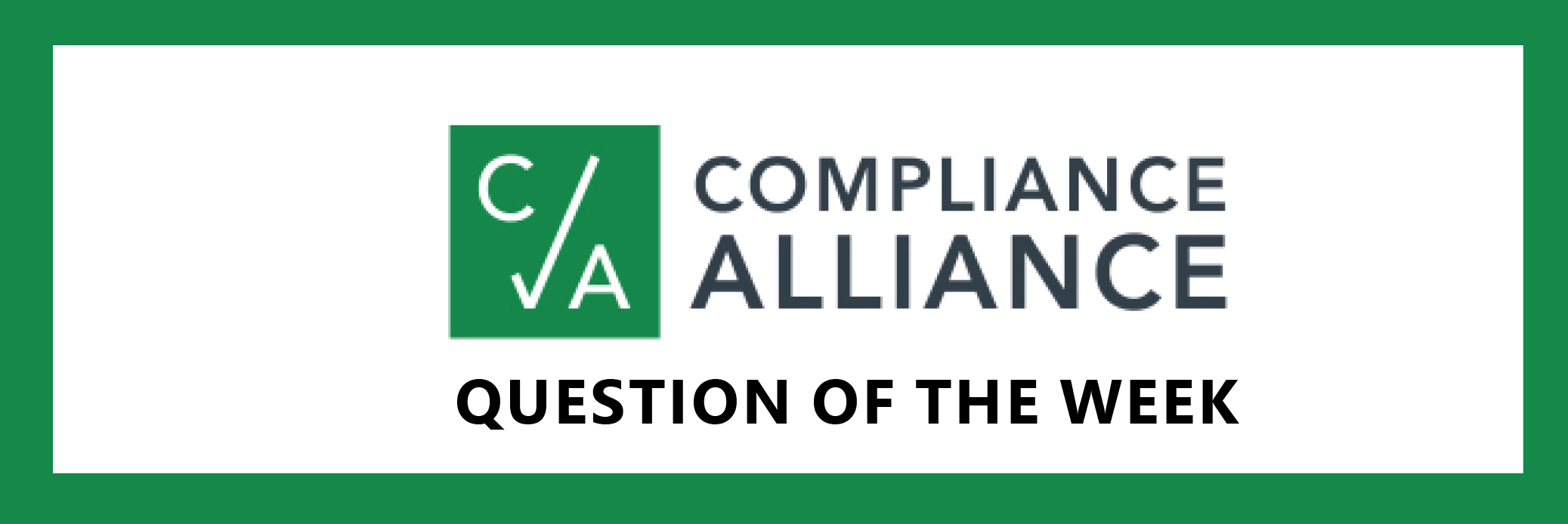
June
June 21:
Question: We have a business customer that has 4 owners, each owning 25%. Three are individuals, and the last is a trust. We have always listed the trustee when a trust is involved in the ownership. Can you verify if this is correct?
Answer: You are correct-- when an entity is owned by a trust, the guidance offered by FinCEN indicates that the bank would not be required to identify the beneficiary and could satisfy the ownership prong by collecting and verifying the identity of the trustee. Further, we offer a Compliance Minute outlining the Beneficial Ownership rule and its effects on trusts, it may be accessed here.
June 17:
Question: Does FinCEN’s new beneficial ownership information (BOI) rule impact a bank’s existing BOI requirements, specifically as it pertains to those entities that are “exempt” from BOI reporting?
Answer: FinCEN's BOI Reporting Rule (31 CFR 1010.380) and FinCEN's BOI Requirements for Legal Entity Customers (31 CFR 1010.230) are two separate, though conceptually related, regulatory requirements. As such, a bank must still establish and maintain written procedures reasonably designed to identify and verify beneficial owner(s) of legal entity customers and include such procedures in its anti-money laundering compliance program. Certain entities are exempt/excluded from the definition of "legal entity customer” (Exclusions from the definition of Legal Entity Customer) and there is overlap with the entities that are exempt from being “reporting companies” under the BOI rule (https://www.fincen.gov/boi-faqs#C_2), but ultimately, the BOI rule will not impact a bank’s current obligations for identifying and verifying beneficial owner(s) of legal entity customers.
June 13:
Question: We have a business customer that has 4 owners, each owning 25%. Three are individuals, and the last is a trust. We have always listed the trustee when a trust is involved in the ownership. Can you verify if this is correct?
Answer: You are correct-- when an entity is owned by a trust, the guidance offered by FinCEN indicates that the bank would not be required to identify the beneficiary and could satisfy the ownership prong by collecting and verifying the identity of the trustee. Further, we offer a Compliance Minute outlining the Beneficial Ownership rule and its effects on trusts, it may be accessed here: https://compliancealliance.com/training/ca-minutes-video/beneficial-ownership-and-trusts-compliance-minute/
June 7:
Question: Can an estate account have a POD beneficiary?
Answer: There is not a specific provision that allows an estate account to have POD beneficiaries. It would also serve no purpose. First, the executor is not the owner of the funds. They are a fiduciary empowered be a probate court to collect the deceased’s assets and distribute them to the rightful heirs. Furthermore, the estate is the owner, and an "estate" does not die so the POD beneficiary designation (even if it could be placed) would never go into effect.
Read Past Questions of the Week